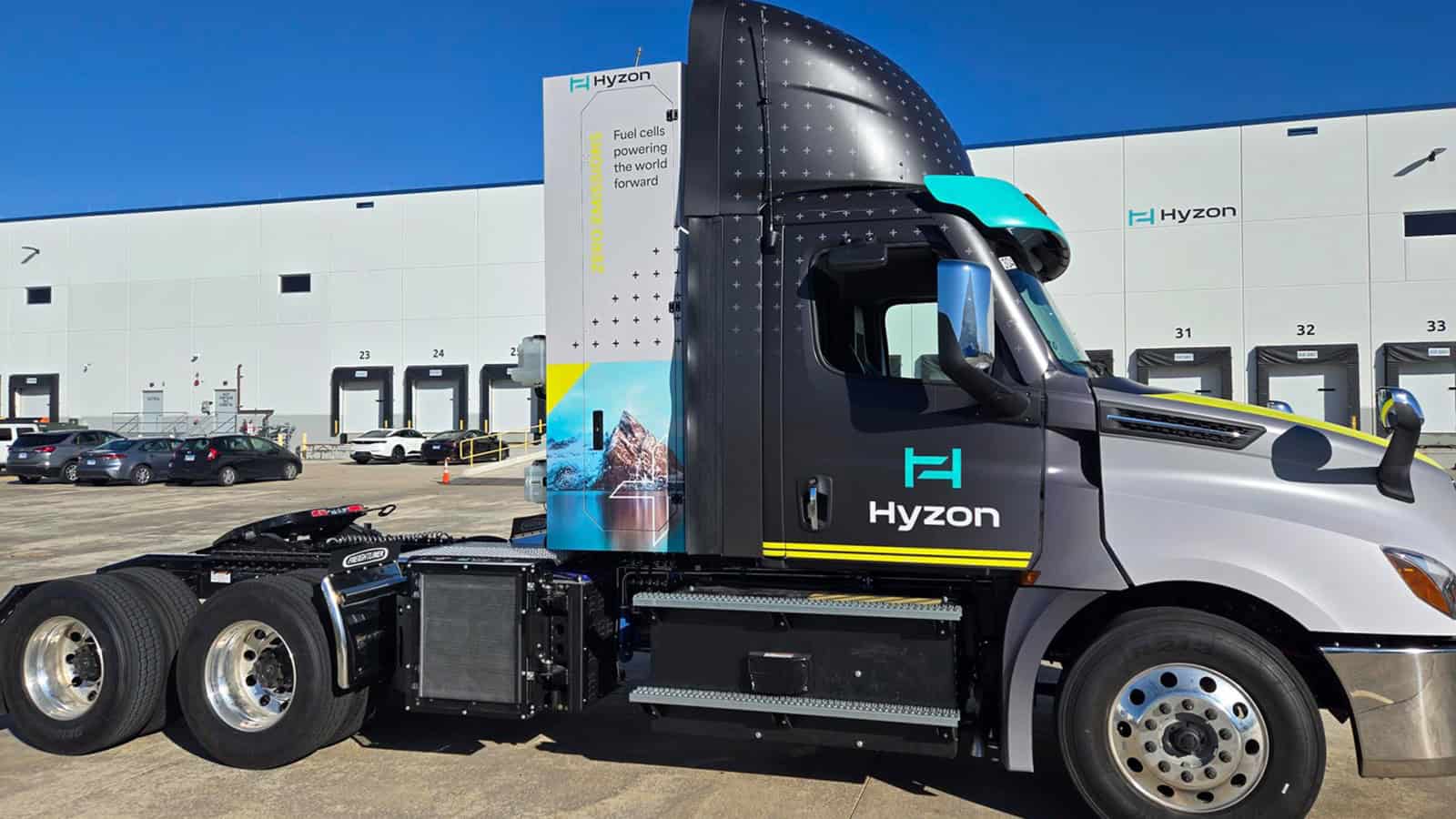Hyzon Reimagines Transportation

If you ask the leaders at Hyzon what kind of company it is, the answer might surprise you. The business, which manufactures “high-performance hydrogen fuel cell systems,” doesn’t consider itself just a manufacturer.
Making things possible: “We are a clean technology company that makes it possible to provide emissions-free power to some of the most difficult applications out there,” said Chief Operating Officer Dr. Bappaditya Banerjee. “It just so happens we are starting with Class 8 and refuse trucks.”
- In September, the Bolingbrook, Illinois–based firm announced the start of production of its single-stack, 200-kilowatt fuel cell systems to power those heavy-duty hydrogen fuel cell trucks. Hyzon is the only U.S. producer of the single-stack 200-kilowatt fuel cell.
- The new system is an upgrade from the 110-kilowatt fuel cell assemblies that Hyzon used in its first-generation vehicles.
- “If we were to put together two 110-kilowatt fuel cells to get to 200 kilowatts, the single-stack system would be 30% lighter than two110-kilowatt systems, as well as 25% cheaper to produce,” Banerjee said.
A differentiator: The company aimed to scale up the power of the engine without also significantly scaling up the size—no easy task. So Hyzon developed a proprietary solution: its hybrid bi-polar plate technology.
- “Most [fuel cell] stacks are either metal or carbon, but ours are hybrid,” Banerjee explained. “By hybrid, we mean that the cathode—where the oxygen comes into the system—is carbon, while the anode side is metal. The carbon side is more corrosion resistant while the metal side is strong, rigid and easier to manufacture, which allows a compact design.”
- “It’s the structure of the plates and the unique 200-kilowatt, single-stack design that allowed us to make it small enough to fit under the hood of a truck,” added Hyzon Vice President of Global Engineering Ravi Desai. “What does this is the design combination of our Membrane Electrode Assembly, the bi-polar plates and the compact balance of plant,” he said, referring to the network of pipes, hoses and fittings necessary for the fuel cell stack to work.
Uses and range: Hyzon offers two different emissions-free, heavy-duty vehicle types for industrial and commercial use, including a refuse collection truck. The models boast driving ranges comparable to those of diesel-powered trucks.
- The Heavy Duty Class 8 Fuel Cell trucks can typically go 350 miles from full storage tanks to empty, while the Fuel Cell garbage trucks can do a full day of work (at least 1,200 trash bin lifts and 125 miles of driving range) on a full tank.
- The trucks take about 15 to 20 minutes to refuel with a fast-fill dispenser at 350 bar, the pressure of the hydrogen gas needed to fill the trucks.
A challenge: In the U.S., the only publicly available hydrogen fuel refilling stations are in California, restricting widespread adoption for now. Meanwhile, the cost of filling up can be high.
- To support the construction of stations around the country and lower prices, the Biden administration announced $7 billion in funding last year for regional clean hydrogen “hubs.”
- In addition, the Inflation Reduction Act created the 45V hydrogen production tax credit, designed to help jumpstart scalable and sustainable domestic hydrogen fuel production.
- The credit is not yet available to companies, however, as the administration works to issue final regulatory guidance. The NAM has worked tirelessly to ensure this guidance is as broad, flexible and fair as possible.
Good for everyone: Hyzon doesn’t want to be the only player in the hydrogen ecosystem. On the contrary, it welcomes competition for the good of consumers and the industry.
- “The number of people who have been able to provide something useful [in transportation] using hydrogen is so limited that the more of us who succeed, the more it allows for hydrogen to become a normal part of our infrastructure,” said Banerjee. “A rising tide lifts all boats.”
